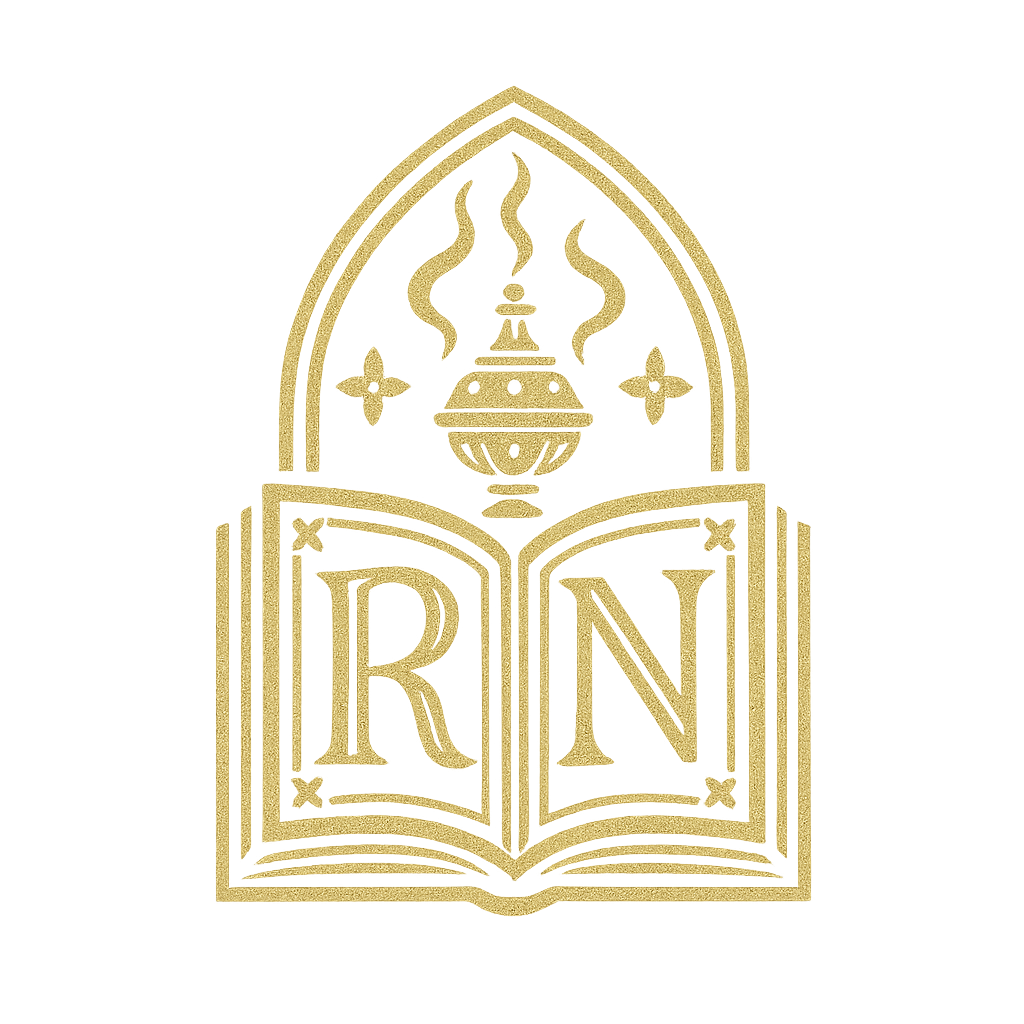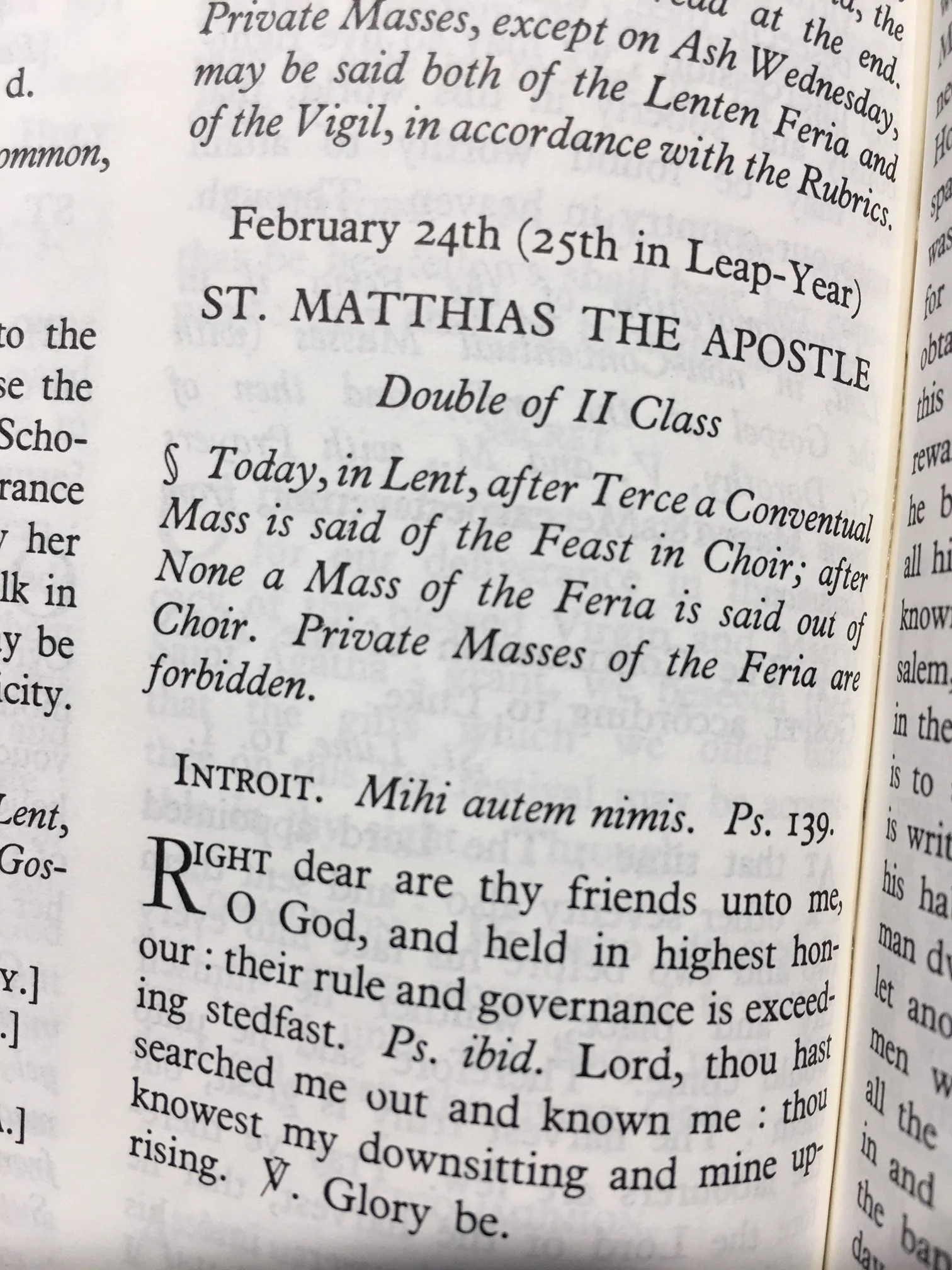Occurrence
The problem with using one's phone as an alarm clock is that the first things you see when you wake up are notifications. It is indeed a good and holy practice to eliminate notifications from our smartphones, but it’s so very tempting to hit the button to end the alarm and then open our email and see what will cause alarm. Before I get out of the bed, there is a digital map of what needs to be done in the next 12 hours. Emails, calendar notifications, texts, etc. One of the most jarring realities of a parish priest (and this is not limited to priests) is that it
Liturgically, this is called occurrence. Whenever there are two (or more) liturgical celebrations on the same day, they are said to be in occurrence. It is like walking into the sacristy and seeing multiple notifications of various important things that must be remembered, celebrated, and observed. For instance, today, February 24, is the Feast of St Matthias and a Lenten Ember Day. In the past, there were rules and even a chart to help you discern what to do and what not to do. Some occurrences can be quite complicated and takes almost as much time to figure out what to celebrate than it does to actually celebrate it! Feasts and observances had categories like 1st, 2nd, 3rd and 4th class. Double, semi-double, and simple. Privileged ferias, ferias, and the like. St Matthias is a 2nd Class Feast and Lenten Ember Days are 2nd Class Ferias. In 1969, the revision of the Roman Catholic Calendar greatly simplified the process and removed the classes and replaced them with the taxonomy of solemnities, feasts, and memorials. When Rome sneezes, everyone else catches a cold, so we don’t often hear of the older way of keeping time. I am a citizen of both times, which is often confusing and perhaps always unwise, but I find great spiritual benefit in the old ways.
Seemingly obsolete liturgical conundrums like occurrence (and its cousin concurrence) speak of the importance of making distinctions and priorities. It is a reminder that the day is constantly full of demands and challenges, but there is a way forward. And each of those demands and challenges is, in some way, a gift to be received with the expectation that we will be drawn closer to God and deeper in love with our brothers and sisters. I could have scrapped the Lenten Ember Day (doesn’t everyone?) and just celebrated the Feast of St Matthias, but I would be the poorer for it. It’s like that old illustration of having to fill a bucket with rocks of all sizes. Unless you put the big rocks in the bucket first, you’ll never be able to fit them all in. The smaller rocks are able to find their way through the small spaces and fill them. They fit there. If we learn how to recognize and keep the big things, the smaller things will find their place and purpose and they all will fit.
In case you’re wondering, as I understand the chart, we say the office of St Matthias and commemorate with a collect the Saturday Ember Day. For the Mass, we offer the mass for St Matthias, but commemorate the Ember Day and use the Ember Day Gospel for the Last Gospel. Commemorations include saying the collect, secret, and postcommunion of the lesser second feast/observance after the collect, secret, and postcommunion of the first.
This is a lot to organize, but I think it’s worth it.
And of course, this morning, my server had to leave after Morning Prayer. As Saturdays are our least attended days, I was alone and could not say mass. And with an interior smile, put all the things away that had been carefully prepared.


